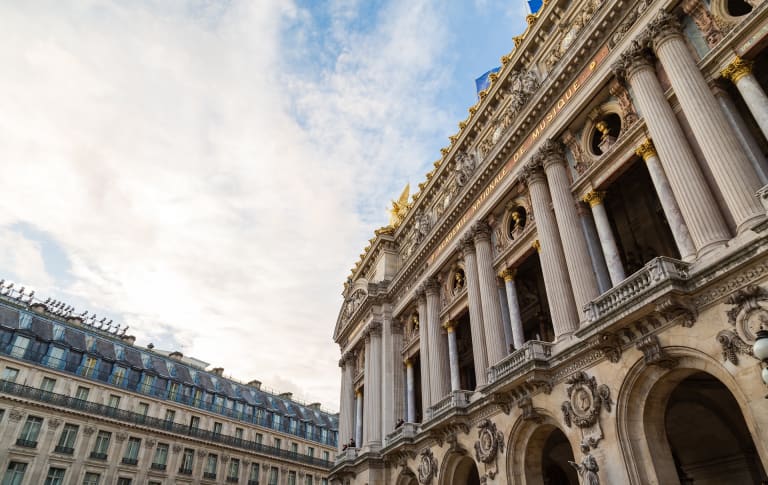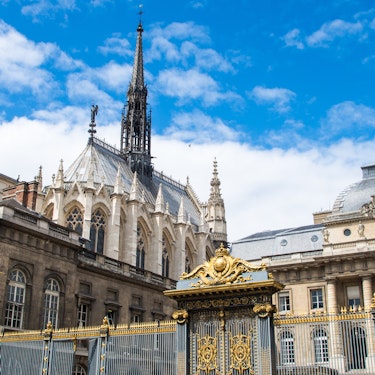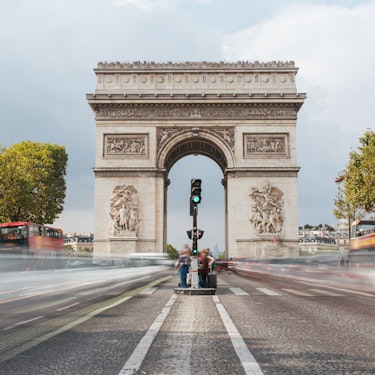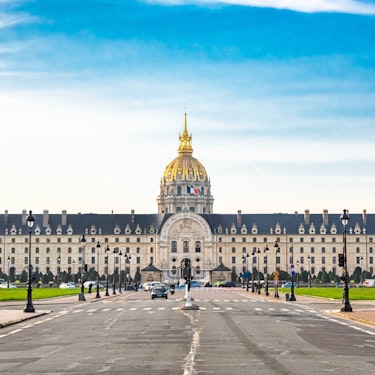More about: Paris Opera House Tickets and Tours
Despite its endless list of spectacular monuments, perhaps Paris' greatest landmark is the Opera House. Nowadays it's possible to visit without paying for a show, so there's no excuse to miss it.
Buy tickets for the Opéra de Garnier

If you choose to buy tickets to the Opera online, I recommend that you do so well in advance. Children under the age of 10 and Paris Pass holders will be admitted free of charge.
Although the Paris Opera is open from Monday to Sunday, there may be specific days of exceptional closures which you can check on the official website.
Attending a show at the Paris Opera House
It is one thing to visit the Paris Opera building and another to attend one of its performances. Choosing the second option (or the first one) will give you access to the main hall during the time of the performance of your choice, but not to the rest of the building (in fact, the shows are outside the opening hours).
If you want to buy tickets for any of the performances at the Paris Opera, you can do so at the box office (several days in advance, of course) or on the official website of the Opéra Garnier.
Opening times of the Garnier Opera House

The Paris Opera is open from 10am to 5pm from Monday to Sunday, but there are public holidays when the visit can be cancelled. The guided tour usually lasts an hour and a half, but if you visit the building on your own, one hour will be enough to see it in depth. This will allow you to combine your visit to the Paris Opera with other activities or museums you want to see during your trip.
I recommend the last pass (at 16:30) so that you can spend the afternoon in the vicinity and leave the morning free to visit other places of interest such as the Louvre Museum, which require more time to visit and wait.
Visit the Opéra Garnier with children

You can visit the Opera with children, but many guided tours do not accept children under the age of five. Even so, in my opinion, the Opera is one of the most appropriate places in Paris to visit as a family because of the average length of the visit and because the little ones will not get tired in long hours of waiting as they can in other museums.
Visiting the Opera Garnier with the Paris Pass

If the Paris Opera is one of the buildings you are sure to visit during your trip, you might want to get a Paris Pass. This is a city sightseeing pass that gives you free entry to a number of Parisian monuments and museums (including the Opera House) and discounts on many others.
With the Paris Pass you can visit the Paris Opera House free of charge and also take the guided tours inside the Opera House. In my experience, the Paris Pass is one of the most comprehensive city passes available; given all the sites the city has to offer, using it (regardless of the days you choose) pays off, but it also requires more planning of your visit to Paris in order to get the most out of it.
I've written a guide on Paris Pass full of tips on when to use it, its advantages and disadvantages and everything you need to know before booking.
Organise your visit to the Opéra Garnier in Paris

How to get to the Opera Garnier
The Paris Opera is located in the Quartier de L'Opera, a central neighbourhood north of the Tuileries Gardens and the Louvre Museum. This is a stately neighbourhood ideal for shopping and strolling without the crowds of tourists and can be reached either by taking a stroll from the nearby neighbourhoods on the north bank of Paris (the Louvre or the Champs Elysées) or by metro (line 7, line 8 and line 3).
Where to eat
If you want to eat in the neighbourhood before or after your visit, you'll find both simple restaurants and elegant cafés where you can enjoy French food without the crowds of other busier areas of the capital. However, I recommend you keep in mind French timetables (lunchtime is usually between 12 and 2pm and dinner starts at 7pm) and book early to avoid waiting.
Ana's Traveller Tip
Take advantage of the fact that you're in the Opera Granier area to take a tour of the luxurious 'passages' and shopping arcades in the area.
Walk around the area

The Paris Opera House is a symbol of the affluent Parisian lifestyle, which is reflected in the building's surroundings and the covered shopping arcades that surround it. One of the most practical options for getting to know the area is to choose a tour that combines a guided visit to the opera with a walking tour of the surrounding area and a visit to the Palais Royal, located between the Opera and Tulleries districts.
Galeries Lafayette and its rooftop terrace
If you are a shopaholic, this will be one of your paradises. Take note of the location so that you can come back later to explore this sort of shopping centre at your leisure, and ask your guide where the best place to buy original gifts is. During your visit, you'll want to go up to the rooftop to take in the views of the area; get your camera ready.
From the rooftops of the Galeries Lafayette you'll have panoramic views of the whole city and you can enjoy them while they tell you stories about Parisian high society and the scandals of the nobility.
Place des Pyramides
One of the many iconic squares in the French capital, located in the 1st arrondissement of the city and presided over by the equestrian statue of Joan of Arc. Your guide will no doubt take advantage of the first stop on this tour to tell you the mythical story of the Maid of Lorraine.
Theatre du Palais Royal
The Palais Royal was the home of Cardinal Richelieu in the early 17th century. Today it houses the Council of State and the Ministry of Culture, among other places that symbolise the political organisation of the country, but its real attraction is the covered galleries full of shops and art galleries. You'll visit them during the tour, but I recommend that you set aside another day for shopping in the area.
Galerie Vivienne

This is one of the most iconic indoor galleries in Paris. Its glass ceilings and the decoration of its shops have earned it the status of historic monument of the city.
Temple La Madeleine
This Greek-style church is one of the most visited in the capital. Its 52 Corinthian columns and the bas-reliefs on the bronze doors showing the Ten Commandments are particularly noteworthy. An ideal stop to learn a little more about the role religion has played in Paris over the centuries and how closely the affairs of the church could be linked to those of Parisian high society.
Place de la Concorde
This is the second largest square in France and is located at the beginning of the Avenue des Champs Elysées. Right now you will see in the centre of this square the Luxor obelisk donated by Egypt to the city of Paris, however, a few centuries ago, what stood in its centre was a statue of Louis XV erected to celebrate his improvement after a long illness.
If you like the stories of the French Revolution, your guide will tell you all about them, as the square was one of the bloodiest scenes of the time; it was the site of the famous guillotine that decapitated personalities such as Marie Antoinette, Louis XVI and Robespierre.
If after this tour you are still hungry for more, the Opera district still has a lot to offer you. This is the case of the Musée Grévin, the Paris wax museum which houses the famous distorted mirrors, the Palais de la Bourse, the neoclassical building where the city's economic activity is concentrated, or the specialised truffle, champagne and caviar shops on the Place de la Madeleine.
What to see at the Opéra Garnier in Paris

The Paris Opera is a building that is worth seeing from the outside; both during the day to appreciate all the architectural details of this neo-baroque building, and at night when it is one of the most powerful attractions of Paris in lights. If the façade already bears signs of luxury and ostentation, going inside the Opera House is like entering a little Versailles.
The roof
Tickets to the Paris Opera will give you access to the place that inspired Leroux's famous play "The Phantom of the Opera". The ceiling of the auditorium, where operas and ballets are still performed today, is one of the main details to observe during your visit.
The decoration
The decoration of the corridors and foyers in which the leading figures of the Parisian elite of the 19th century moved is made of gold leaf, crystal chandeliers and mosaics, a symbol of the opulence of the period and of how the city of Paris was one of the European nerve centres of society and culture.
The staircase
The white marble staircase that links the two levels of the building is also a key part of the visit to the interior of the building designed by the architect Charles Garnier during the reign of Napoleon III.
If you enjoy a visit to the Paris Opera, you will also like

For me, walking the corridors of the Paris Opera was very similar to the opulence and grandeur that can be seen at the Palace of Versailles. Apart from the style of lavish decoration present in both tourist spots, I think it is because the two buildings are conveying the same message: the affluence of a society on the one hand and that of an absolutist monarchy on the other.
Paris has always been the mirror in which Europe looked at itself and I think that, although each in its own way, both buildings show it.
If you liked the style of the Paris Opera, you will definitely enjoy the Palace of Versailles. Note that the tour is a full day trip and that it is located on the outskirts of Paris. You can buy your tickets in advance and choose which type of visit you want to do and you can also read more about it in this article I wrote about the Palace of Versailles. Versailles Day Trips from Paris.
If you would also like to complete your trip to Paris with a cultural visit, I can tell you that Paris has one of the richest museum offerings in Europe.
As the variety can be overwhelming when choosing which museums to visit, I have compiled my favourites in this guide to the museums in Paris. The 17 Best Museums in ParisThe Louvre is one of the most popular museums in the world, but you'll probably end up choosing the Louvre. I leave you here this article on Louvre Museum Tickets and Tours in case you want to know more.














